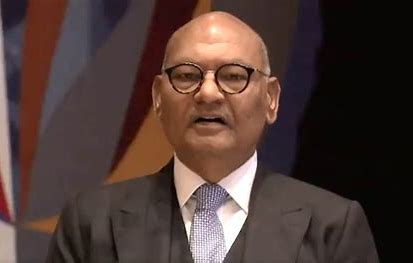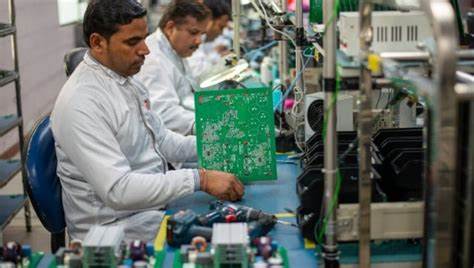After terminating the joint venture with Foxconn, Vedanta’s Chairman, Anil Agarwal, announced that the company has identified a “world-Class” technology partner for its semiconductor unit in India. The finalization process of evaluating the partnership is currently underway.
Agarwal, speaking at the “Semicon India 2024” event in Gandhinagar, emphasized Vedanta’s unwavering dedication to semiconductor manufacturing and display fab.

He added that Gujarat is the ideal location for building India’s silicon valley.
Praising PM Narendra Modi and the Gujarat state government for their unwavering commitment to transforming India into a semiconductor hub in Asia, he asserted that the country is now considered the most promising destination for investors due to its ease of land acquisition. According to him, investing in India is a reliable choice as the country offers fertile ground for entrepreneurs and businesses.
Agarwal further revealed that the company is currently engaged in discussion with three technology partners to establish separate tie-ups for a foundry, chip packaging, and testing facility, and a semiconductor fabrication unit. He expressed optimism that in 2.5 years Vedanta will commence production of indigenous chips in India. The partnerships with the technology companies are expected to solidify in the coming months.
Vedanta’s Fab Ambitions: Navigating Rocky Roads

Vedanta’s aspirations to establish a semiconductor fab have encountered several challenges along the way. Initially, the government returned a proposal due to the absence of a technology partner, emphasizing the importance of collaboration with veteran chip technology players for investment as a joint venture partner. Despite reportedly entering memoranda of understanding with international companies like STMicroelectronics, the stringent government requirements persist.
Moreover, the exit of their JV partner, Foxconn, from a $1.9 billion joint venture, dealt another blow to Vedanta’s plans, as the company chose to pursue its own ventures instead. Adding to the complexities, industry experts have raised concerns about Vedanta’s financial capacity to establish and sustain a fab in a fiercely cyclical industry.
Prioritizing Ecosystems: Vedanta Counters critics
n response to the criticisms, Vedanta’s Chairman, Anil Agarwal asserted that the company possesses a healthy cash flow and plans to allocate capital accordingly. He emphasized that while investors have shown ample interest in equity and debt opportunities, Vedanta’s priorities lie in finalizing tie-ups and establishing a robust ecosystem before moving forward.
Government’s Vision : India as a Semiconductor Powerhouse

Minister of State for Electronics and Information Technology, Rajeev Chandrasekhar, expressed the semiconductor industry’s overwhelming confidence in India as a leading destination for investments and innovation. With an ambitious plan to invest $10 billion (approximately Rs 81,993 crore) in the semiconductor space over the next decade, India aims to achieve what took China three decades to accomplish.
In line with this vision, the government is implementing a comprehensive curriculum in collaboration with industry partners, focusing on VLSI (very large-scale integration). This initiative aims to nurture and produce 85,000 globally skilled talents, spanning post-doctorate degrees, master’s, and undergraduate courses, ensuring a thriving and self-reliant semiconductor ecosystem in the country.
As per Deloitte’s “2024 semiconductor industry outlook” report, this concerted effort is part of India’s journey towards contributing significantly to the projected $1 trillion global semiconductor industry revenue by 2030.












